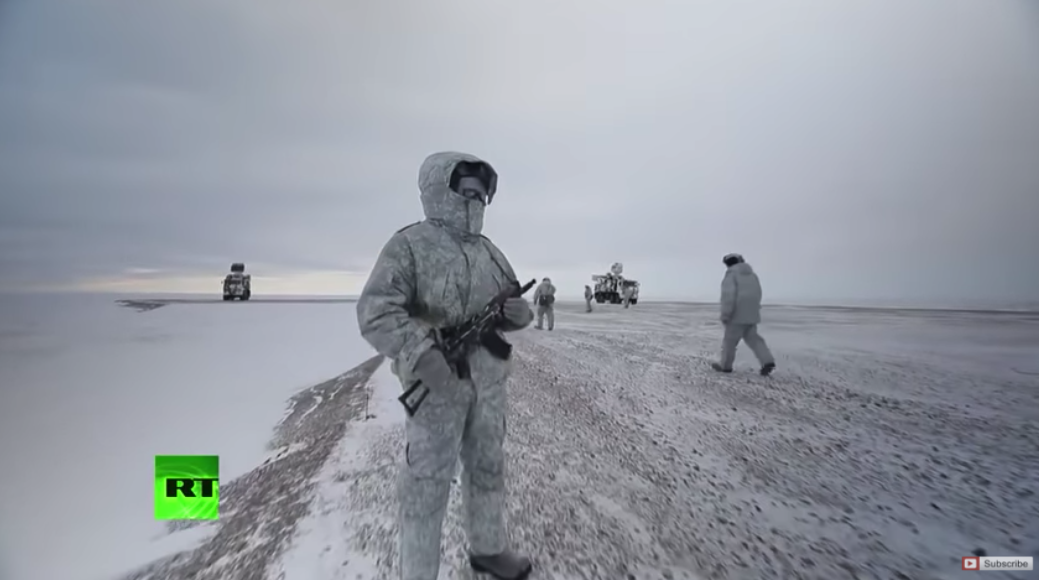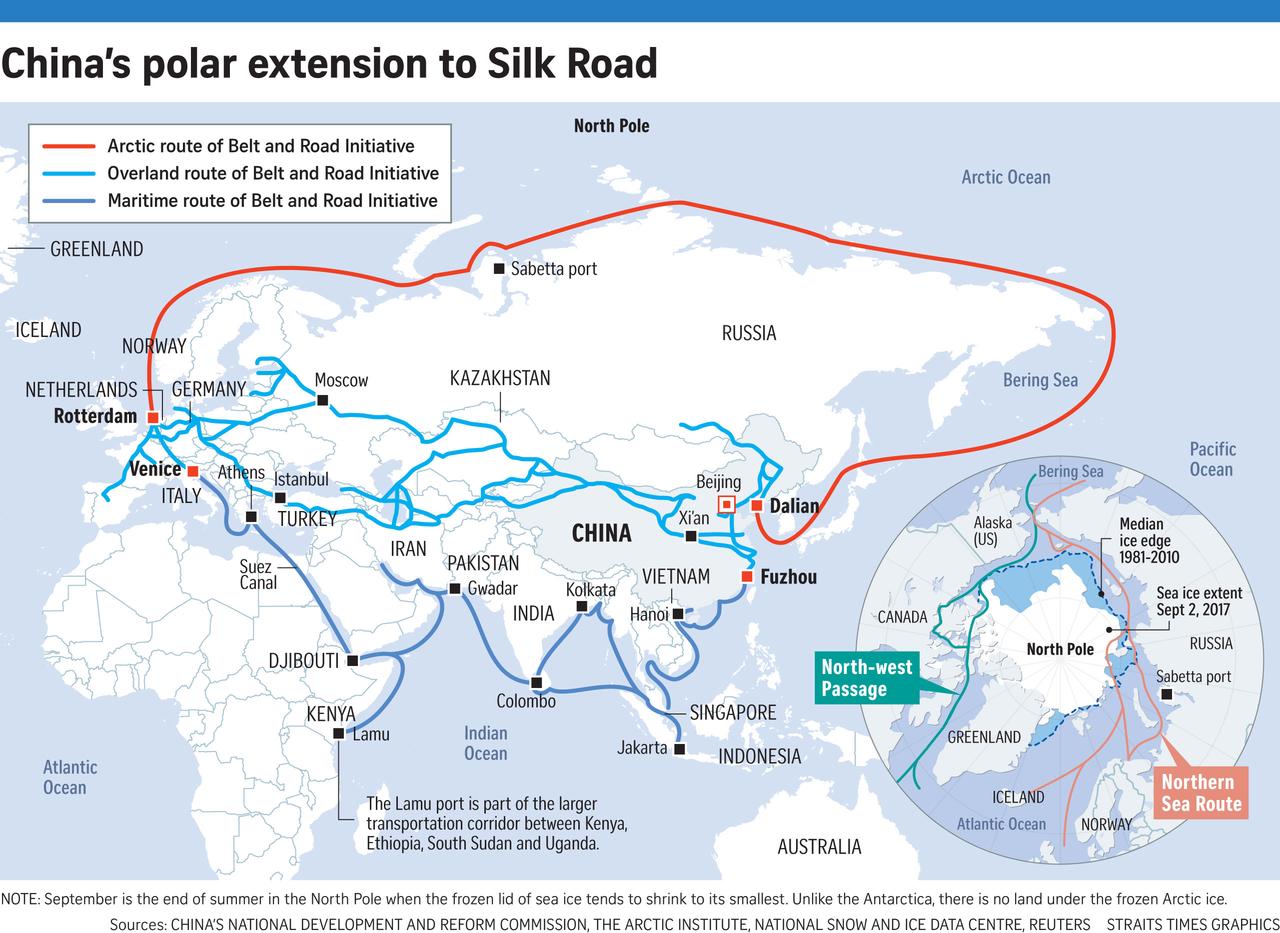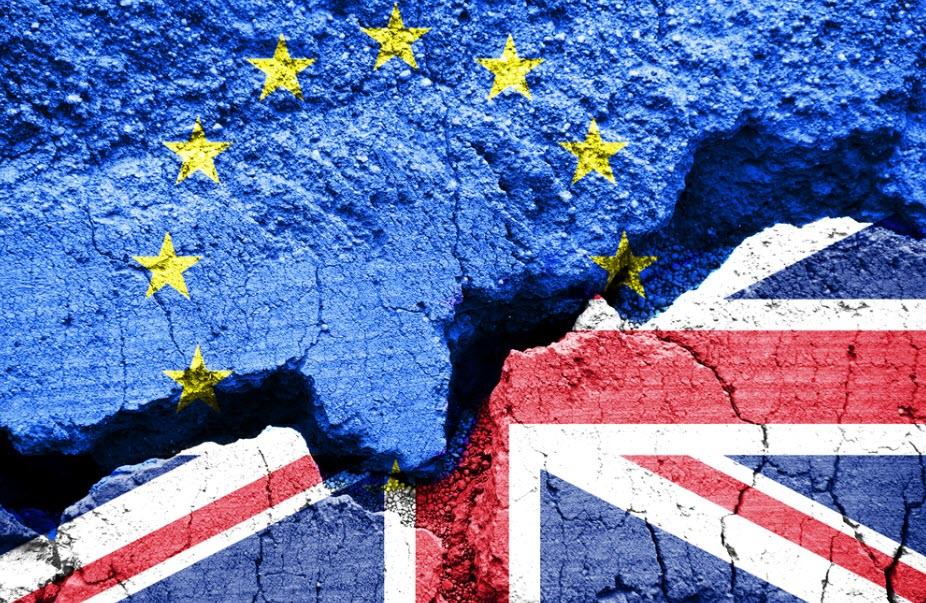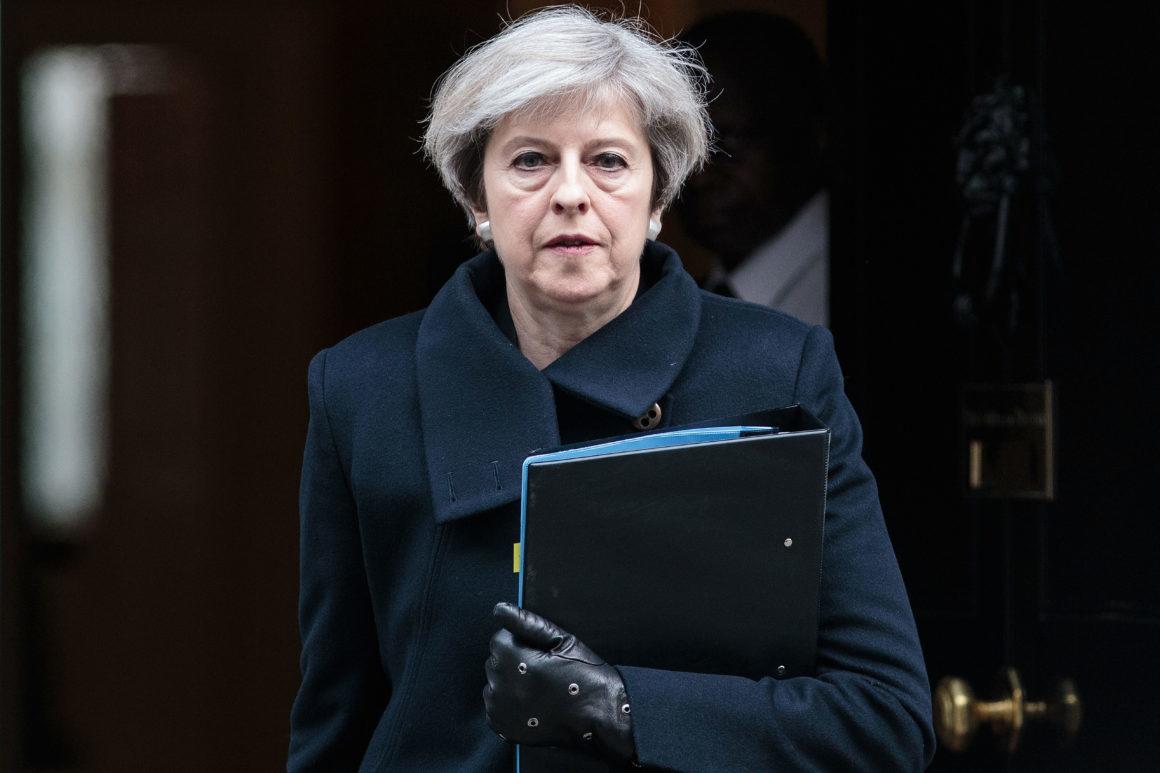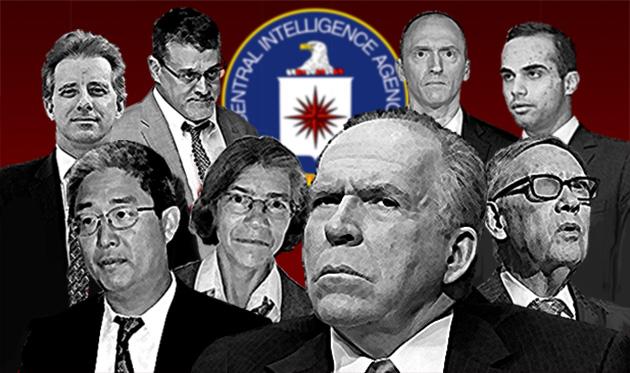Authored by Nafeez Ahmed via Insurge Intelligence,
In an explosive interview, a former ISIS commander has claimed that the terror group cooperated directly with Turkish state intelligence agencies for years on areas of “common interest”.
The source said that senior Turkish government officials had numerous meetings with ISIS representatives to coordinate activities and that this also involved providing support and safe harbour to foreign fighters in the country. President Erdogan “was working hand in glove with ISIS” according to the US government counter-terrorism consultants who interviewed the ex-ISIS official.
The relationship raises questions about Turkey’s role as a NATO ally in the Syria conflict.
The source, who served as an ISIS emir for three years, Abu Mansour al Maghrebi, was interviewed by Professor Anne Speckhard, director of the International Center for the Study of Violent Extremism (ICSVE) and a long-time US government counter-terrorism consultant for NATO, the CIA, FBI, State Department and Pentagon, as well as by Dr Ardian Shajkovci, the ICSVE’s director of research.
Although not all of al-Maghrebi’s claims can be verified, most of them are corroborated by the claims of other whistleblowers and former ISIS personnel as previously reported by INSURGE.
Speckhard and Shakovci described Abu Mansour as a sort of ISIS diplomat to Turkey based in Raqqa, Syria.
“My issue[duties] was our [Islamic State’s] relationship with Turkish intelligence. Actually, this started when I was working at the borders,” he explained.
Originally from Morocco, Abu Mansour was an electrical engineer who went to Syria in 2013 to join ISIS. His first job with the terror group involved handling foreign fighters coming to join ISIS via Turkey. This involved liaising with a network of ISIS-paid operatives inside Turkey who would direct fighters from Istanbul to the Turkish border towns of Gaziantep, Antakya, Sanliurfa, and so on.
“Most of them were paid by Dawlah[ISIS],” Abu Mansour said, but said that those working in Turkey were usually motivated by money rather than ideology. But he acknowledged: “Many in Turkey believe and give their bayat [oath of allegiance] to Dawlah. There are ISIS guys living in Turkey, individuals and groups, but no armed groups inside Turkey.”
ISIS militants parade through the streets of Raqqa, Syria in an undated image posted on Monday, June 30, 2014
Abu Mansour later travelled to Raqqa in 2015 where he facilitated Turkish medical treatment of ISIS fighters after high-level meetings with Turkish state intelligence. Abu Mansour claimed to have received his orders straight from Mohamed Hodoud, a representative of ISIS’ Majlis al Shura, and also to have briefly met the terror group’s elusive leader Abu Bakr al-Baghdadi. He told his interviewers:
“There were some agreements and understandings between the Turkish intelligence and ISIS emni about the border gates, for the people who got injured. I had direct meeting with the MIT [the Turkish National Intelligence Organization], many meetings with them.”
He added that these regular meetings occurred between a range of agencies, including Turkish intelligence and the Turkish military:
“There were teams. Some represent the Turkish intel, some represent the Turkish Army. There were teams from 3–5 different groups. Most meetings were in Turkey in military posts or their offices. It depended on the issue. Sometimes we meet each week. It depends on what was going on. Most of the meetings were close to the borders, some in Ankara, some in Gaziantep.”
Abu Mansour described having complete impunity to travel between Syria and Turkey, leading Speckhard to describe him as in effect an ISIS ‘Ambassador’. “I passed the borders and they let me pass”, he said. “[At the border], the Turks always sent me a car and I’m protected. A team of two to three people from our side were with me. I was in charge of our team most of the time.”
Although Abu Mansour denied being a “big guy”, he admitted that his reach on behalf of ISIS potentially extended to President Erdogan himself:
“I was about to meet him but I did not. One of his intelligence officers said Erdogan wants to see you privately but it didn’t happen.”
The interview with Abu Mansour was published on March 18th2019 in Homeland Security Today, the magazine of the Government & Technology Services Coalition (GTSC) — a trade association of CEOs including former US government officials which work in the US national security sector.
A strategic partnership
Abu Mansour argued that his role was to coordinate a relationship between ISIS and Turkey where “both sides benefit.” Abu Mansour said that Turkey saw ISIS as a strategic tool to expand Turkey’s influence in northern Syria as the centre for a renewed empire:
“We are in the border area and Turkey wants to control its borders — to control Northern Syria. Actually they had ambitions not only for controlling the Kurds. They wanted all the north, from Kessab (the most northern point of Syria) to Mosul… This is the Islamists’ ideology of Erdogan. They wanted all of the north of Syria. That is what the Turkish side said [they wanted], to control the north of Syria, because they have their real ambitions. Actually, we talked about what Erdogan said in public [versus what he really desired.] This part of Syria is part of the Ottoman states. Before the agreement following the Second World War, Aleppo and Mosul were part of the Turkish Ottoman Empire. The agreement Sykes Picot [in which they lost these regions] was signed for one hundred years. In our meetings, we talked about reestablishing the Ottoman Empire. This was the vision of Turkey.”
Abu Mansour added that although this vision was routinely attributed to Erdogan was not necessarily shared across the Turkish government:
“I cannot say that this is the vision of the whole Turkish government. Many are against interfering to bring this project to reality. They say we will try to defeat the PKK and Kurds. We are afraid of the union between Kurds and that they may make a Kurdish state, but they also expanded to Aleppo… Since they are a NATO state they cannot make NATO angry against them. So, they cannot deal directly with the situation, but they want to destroy the Kurdish ummah, so they deal with the situation [via ISIS] and get benefits from the Islamic State.”
ISIS saw the covert alliance with Turkey as a “big benefit”, as “they could protect our back. Approximately 300 km of our border is with them. Turkey is considered a road for us for medications, food — so many things enter in the name of aid. The gates were open.”
Turkey’s open gate with ISIS
ISIS fighters routinely obtained medical treatment in Turkish hospitals across the border. The Turkish government also supplied water to the terror group and allowed it to sell tens of millions of dollars of oil via Turkey.
“We negotiated to send our fighters to the hospitals [in Turkey]”, said Abu Mansour. “There was facilitation — they didn’t look at the passports of those coming for treatment. It was always an open gate. If we had an ambulance we could cross without question. We could cross [into Turkey] at many places. They don’t ask about official identities. We just have to let them know.”
Turkish state intelligence was intimately involved in this process, he claimed:
“The MIT was made aware of every critical situation and they sent the ambulances to the border. There were also hospitals close to the border. Those who received critical care were treated there and they [the MIT] sent the others all over Turkey depending on their needs. There were very interested doctors, Syrian and Turkish, who wanted to help. So, if there were not facilities to serve them on the border, they would be sent further into Turkey for this.”
Medical bills were largely paid for by ISIS, but “some Turkish public hospitals took these fighters for free. It was not only for our fighters but also for the victims of bombings. I don’t know how many were treated in Turkey, but it was routine… I just know this agreement to open the gates for our wounded and that there were ambulances sent for them. It was a ‘state- to- state’ agreement regarding our wounded. I negotiated these agreements. For the wounded, medical and other supplies to pass, and I negotiated about water also, the Euphrates.”
Water supplied by Turkey allowed ISIS to farm and even generate electricity from dams:
“Actually we [Syria] had an agreement with Turkey for 400 cubic meters per second [of water] into Syria. After the revolution, they started to decrease the quantity of water to 150 cubic meters per second. After our negotiations [in 2014] it returned to 400. We needed it for electrical power and as a vital source of living.”
ISIS water agreement with Turkey “took a long time to negotiate,” according to Abu Mansour. In return ISIS gave the Turkish government guarantees that the country would be “safe and stable” from ISIS attack. “In negotiations I could not say I would attack Turkey. This is the language of gangs, but I would say we will try to keep Turkey from the field battle, we will not see Turkey as an enemy. They understood what we are talking about. We said many times, ‘You are not our enemy and not our friend.’”
Abu Mansour further claimed Turkey was the primary conduit for ISIS oil sales: “Most of the Syrian oil was going to Turkey, and just small amounts went to the Bashar regime…. This happened spontaneously. There are many traders to do that and Turkey was the only market in which to send oil. Their traders paid for the oil that went into Turkey.”
Most of these deals occurred via Turkish middleman who were sanctioned by the authorities:
“Oil that went to the Syrian government — some went by pipes, some by trucks. Oil sent by Dawlah [ISIS] to Turkey was arranged by traders from Turkey who came to take the oil with our permissions. Traders came from the Syrian side also.”
Oil sales via Turkey, Abu Mansour confirmed, were instrumental in bankrolling ISIS’ military onslaught. “In Syria the oil was enough to pay for the weapons and everything needed,” he said. “[Our oil revenues] were more than 14 million dollars per month and half of this oil money is more than enough to pay for everything needed for our weapons expenditures.”
These claims lend credence to an earlier INSURGE investigation into ISIS oil sales which raised questsions not just about Turkish state complicity, but also that of a number of Iraqi Kurdish and Western companies.
However, Abu Mansour denied that ISIS received weapons or funding directly from Turkey. Instead he claimed that weapons were routinely obtained by ISIS from sources inside armed opposition groups: “Anti-government Syrian people provided us with weapons; many mafias and groups traded weapons to us.”
A familiar story
Abu Mansour’s claims about Turkish military intelligence’s direct support for ISIS have been corroborated by other sources. In 2016, I interviewed Ahmet Sait Yayla, Chief of the Counter-Terrorism and Operations Division of Turkish National Police between 2010 and 2012, who went on to become Chief of the Public Order and Crime Prevention Division until 2014.
Yayla told me in extensive detail how he had witnessed first-hand that his own police counter-terrorism operations were scuppered due to Turkish intelligence liaisons which protected ISIS fighters, routinely granted them free passage in and out of Turkey, and provided them medical treatment in Turkish hospitals.
He had however gone much further in describing how he had seen evidence of direct Turkish military and financial sponsorship for some ISIS operations. Yayla’s detailed testimony suggests that Abu Mansour’s role as chief negotiator with Turkish intelligence did not cover certain key strategic issues such as direct military and financial support, which would explain why Abu Mansour was not aware of it.
My story on Yayla was banned in a Turkish court order last year sent to US tech and social media companies.
INSURGE has previously reported other emerging evidence from Western intelligence sources indicating Turkish state complicity in the expansion of ISIS across Syria.
The new revelations reinforce questions about why Western governments have ignored the evidence of state-sponsorship of ISIS — within NATO no less — despite international laws requiring firm action against entities found to be supporting terrorism.
The double game
In 2014, Abu Mansour alleges that Turkey was allowing foreign fighters into Syria while pretending to take measures against them:
“Turkey wanted to make it easy for foreign fighters to cross the borders… They just want to control, they need to be known, and how they enter, so they ask me to tell who has entered and where. Actually, the Turkish side said, ‘You should reduce, change the way you do it, the way you cross. For example, don’t come with a group to enter because it’s clear that a bunch of people entered. Enter only specific gates. Come without any weapons. Don’t come with long beards. Your entry from north to south should be hidden as much as possible.’”
Once again, Turkish intelligence was directly involved: “[In 2014,] they opened some legal gates under the eye of Turkish intel that our people went in and out through. But, entry into Syria was easier than return to Turkey. Turkey controlled the movements.”
ISIS terrorist attacks in Turkey orchestrated by Turkish MIT agents?
Perhaps Abu Mansour’s most controversial claim is that ISIS attacks inside Turkey — on Istanbul airport, at the Reina nightclub and on the streets in Ankara and Istanbul — were not in ISIS’ own interests, but were likely carried out under the orders of Turkish intelligence officers who had infiltrated ISIS:
“The ISIS external emni ordered it. And I think that there were Turkish MIT guys inside the external emni. I suspected that the striking at the airport was not for the benefit of IS, but Turkish groups of IS who wanted to strike Turkey, or they were affected by other agencies that don’t want a relationship between Dawlah and Turkey. It makes no sense, otherwise, because most of our people came through that airport.”
His explanation for this is that the orders for the attack did not come from ISIS leadership proper, but from Turkish MIT officers:
“These orders for these attacks in Turkey were from those MIT guys inside Dawlah but not from our political side. They didn’t want to destroy Erdogan, just change his road in the matter of the Syrian issue. They wanted him to use his army to attack Syria, and to attack Dawlah. The airport attack makes a good excuse for him to come into Syria.”
To be sure, there is no way to independently verify Abu Mansour’s extraordinary allegations against Turkish state intelligence, but they are partly corroborated by the claims of another former ISIS operative, Savas Yildas, who was captured by the YPG during the ISIS attack on the Kurdish province of Gire Spi (Tel Abyad) in Syria. Abu Mansour added that during his imprisonment in Kurdish YPG prisons, he had heard “that the Turkish government, after they were in Raqqa, took 40 persons out that were part of Turkish security agencies.”
The new revelations contradict years of a conventional narrative which has portrayed ISIS as a spontaneous movement erupting without significant state support.
Turkey is hardly the only state which Western intelligence agencies knew were financing ISIS – others include Saudi Arabia and Qatar.
* * *
Published by INSURGE INTELLIGENCE, a crowdfunded investigative journalism project for people and planet. Please support us to keep digging where others fear to tread.
via ZeroHedge News http://bit.ly/2GeS9eq Notypist



